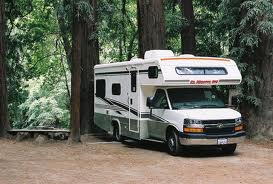
Insuring a recreational vehicle (RV) isn’t quite as simple as insuring the average car. While you can get a standard auto insurance policy for such vehicles, it’s better to get a policy specifically tailored to an RV, to give you extra peace of mind when you’re out on the road.
There are several factors to consider when insuring an RV. These include:
- Will you live in your RV full-time, or store it for the winter (or summer)? If you plan to live in it you’re going to need more than basic vehicle coverage. There is a type of “floating” homeowners insurance designed to cover recreational vehicles, and most specialty insurers sell it. That’s the kind of policy you need, especially since it can include coverage for your belongings.
- If you are storing it, will it be on your own land, or stored elsewhere? If you’re storing it on your own land, you can save money by proving that it’s in a locked garage. If you’re storing it off-site, you’ll need to know if the storage facility has any kind of basic insurance in place, or if you are responsible for everything.
- Do you belong to any RV clubs or associations? Membership in an RV club or association can save you a lot of money. Some clubs offer group discounts from certain insurers, while others have staff (or other members) who will help guide you through the process of insuring your RV. As well, you’ll have a guaranteed source of support, should you need it.
Another factor to consider is whether or not your existing auto insurer covers RVs. Some mainstream insurers do cover non-standard vehicles, and will let you have a multiple-car discount when you add an RV policy to your collection. Others don’t offer additional lines, and will refer you to a specialty insurer.
Using a specialty insurer may not be a bad idea. These companies make their money by being experts on a specific segment of the insurance market, and because their exposure is limited, the premiums may be lower than they would be with a more mainstream insurance company.
Even if you don’t go to a specialty company or belong to an RV association, there are ways to save a bit of cash on your RV insurance. These include:
- having good credit
- having a clean driving record
- raising your deductible (high deductibles = lower premiums)
- having a less expensive model of RV
- having demonstrable experience driving and RV
Generally speaking, you can expect the process of insuring an RV to be somewhat similar to shopping for new auto insurance. The essential differences are related to storage and use, though the more expensive your RV, and the more technologically advanced it is, the more you’re likely to pay for your premiums.
As with car insurance, however, the worst thing you can do is not have coverage.





